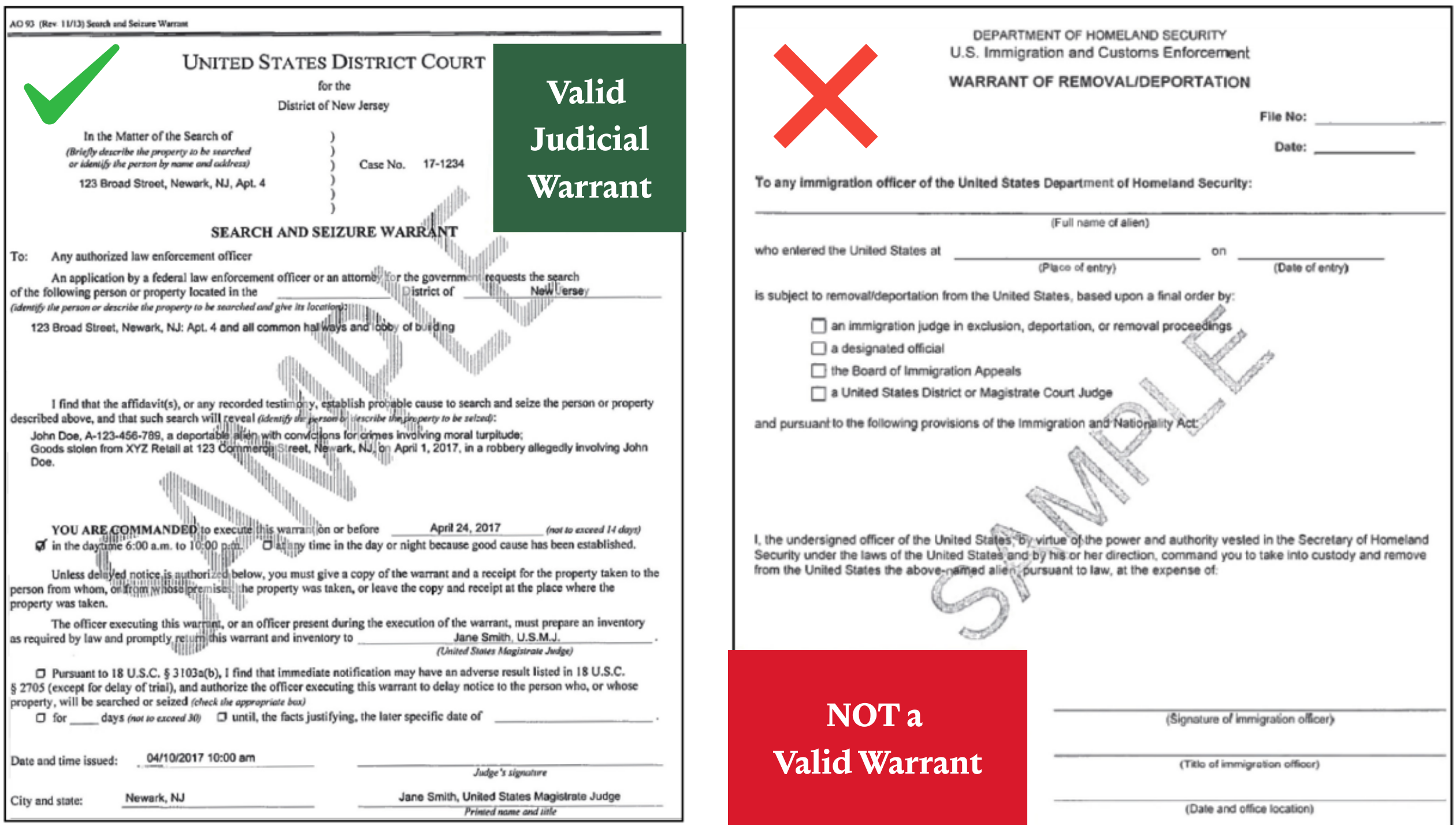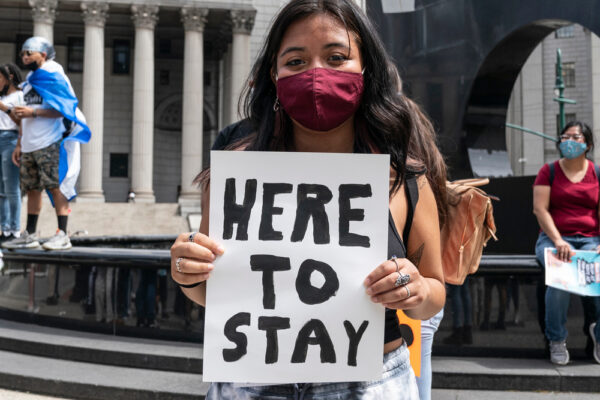The ACLU of Idaho is invested in protecting the rights of immigrants to live in Idaho free from harassment, discrimination, and targeted unfair attacks from lawmakers.
All people in Idaho, regardless of their immigration status, have access to constitutionally protected rights, such as the right to be free from unreasonable searches and seizures, the right to equal treatment under the law, the right to an attorney, the right to remain silent, and more. We encourage all Idahoans to actively learn their rights so we can fiercely defend them together.
The organizations below have reliable information for immigrants on passports and gender markers.

Examples of a valid judicial warrant and an invalid ICE warrant.
Related Content

ACLU files lawsuit against the state to stop HB 83

ACLU of Idaho Report Shows Discrimination Against Latine Students
Stay Informed
Sign up to be the first to hear about how to take action.
By completing this form, I agree to receive occasional emails per the terms of the ACLU’s privacy statement.
By completing this form, I agree to receive occasional emails per the terms of the ACLU’s privacy statement.



